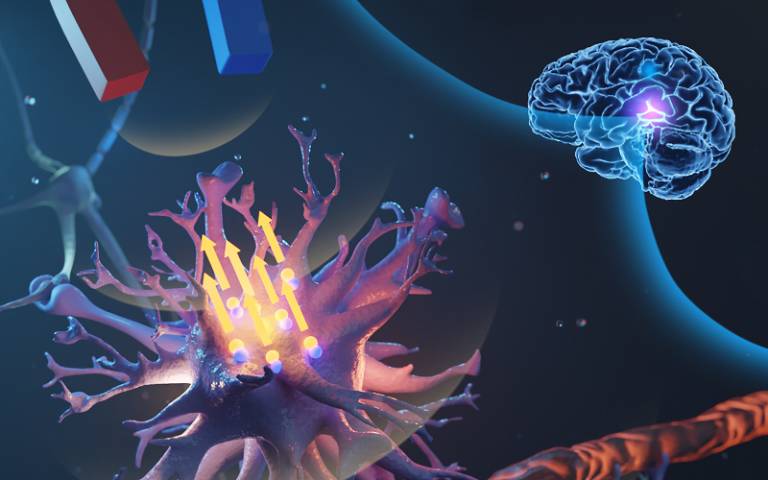Magnetic microparticles allow remote control of select brain cells
Date: 2.3.2022
The ability to stimulate and or control cells in the brain could provide us with powerful new ways to understand and treat neurological disorders, and we're starting to see some very interesting ways this might be achieved.
 Scientists at University College London (UCL) have demonstrated in rodents a new type of "micromagnet" that can work as a miniaturized mechanical switch to turn on touch-sensitive cells, offering a new method for controlling specific regions of the brain.
Scientists at University College London (UCL) have demonstrated in rodents a new type of "micromagnet" that can work as a miniaturized mechanical switch to turn on touch-sensitive cells, offering a new method for controlling specific regions of the brain.
There are parallels between this breakthrough and another exciting branch of research focused on careful control of cells in the body, known as optogenetics. This technique involves inserting genes into otherwise regular calls to make them sensitive to light, allowing them to be stimulated for the purposes of treating paralysis, relieving pain and restoring vision.
Although there have been success stories, such as a case when optogenetics was used for partial vision restoration in a human for the first time last year, adapting the technology for clinical use has proven difficult due to the need for genetic modification of the cells. The UCL team has come up with another way of controlling brain activity that doesn't involve such measures.
“Our new technology uses magnetic particles and magnets to remotely and precisely control brain cell activity and, importantly, does this without introducing any device or foreign gene into the brain," said lead researcher Dr Yichao Yu.
-























